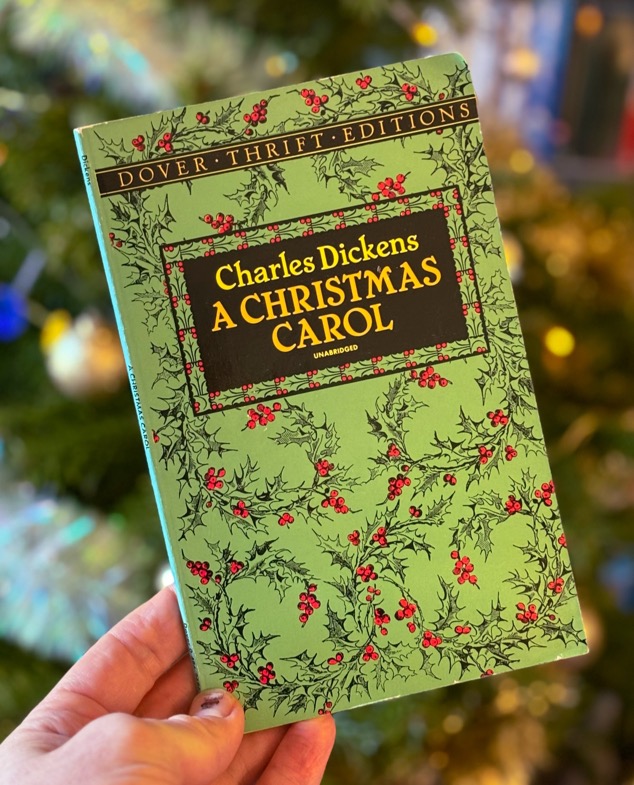Tuesday Book Club: A Christmas Carol
17 December 2024, Filed in: Book Club | Classic Literature | Christmas Stories | Victorian Fiction | Books Adapted into Films

Welcome back to P-Wave Press’s Tuesday Book Club! Last week, we explored Hermann Hesse’s Siddhartha, a profound story of spiritual discovery through quiet reflection and personal growth. This week, we turn to another tale of transformation and redemption—A Christmas Carol by Charles Dickens. But while Siddhartha’s journey was one of contemplative searching, Ebenezer Scrooge’s path to enlightenment is far more vivid, urgent, and ghostly.
Why A Christmas Carol?
First published in 1843, A Christmas Carol is more than just a holiday classic—it’s a cultural touchstone. Dickens’s novella tells the story of Ebenezer Scrooge, a miserly old man who despises Christmas and all it represents. On Christmas Eve, he is visited by the ghost of his former partner and the spirits of Christmas Past, Present, and Yet to Come. Through these haunting encounters, Scrooge transforms, discovering the joy of generosity, empathy, and human connection.
At its core, A Christmas Carol is a powerful story of redemption and the possibility for change. Dickens’s vivid prose brings 19th-century London to life, from its bustling streets to its cold, shadowed corners, while his universal message—of kindness, compassion, and community—remains just as meaningful today.
Two journeys, two perspectives
Where Siddhartha invited us to meditate on life’s meaning through reflection and subtle encounters, A Christmas Carol jolts us into awareness with its urgency and spectral drama. Both stories remind us that spiritual transformation can take many forms, but the ultimate destination is the same—toward a life of meaning, compassion, and connection.
A story for all time
Dickens wrote A Christmas Carol at a time when industrialization and poverty were changing the face of England. It was a plea for social responsibility, wrapped in a tale that speaks to the heart. Over the years, the story has transcended its origins, inspiring countless adaptations in literature, theater, and film.
But returning to the original text is always a revelation. The warmth, wit, and sharp critique of society found in Dickens’s words are what make A Christmas Carol endure. It reminds us that joy is found not in wealth but in generosity and connection with others.
Join the conversation
As we revisit A Christmas Carol, we’d love to hear your thoughts. What is it about Scrooge’s transformation that resonates with you? Which of the three spirits do you find most compelling? And how does Dickens’s message hold up in our modern world?
Whether you’ve read it countless times or are encountering it anew, this week’s Tuesday Book Club invites you to reflect on how this tale of redemption inspires us all to embrace the spirit of giving.
Share your thoughts
Use #TuesdayBookClub and #AChristmasCarol to join the conversation on X (formerly Twitter) and Bluesky. Share your favorite quotes, reflections, or memories tied to this timeless story. Let’s celebrate the season together through Dickens’s enduring words.
Next Tuesday, we’ll feature another title to inspire and delight—stay tuned! Until then, may the timeless spirit of A Christmas Carol remind us all to keep the season’s joy in our hearts all year long.
“I will honour Christmas in my heart, and try to keep it all the year. I will live in the Past, the Present, and the Future.” – Charles Dickens, A Christmas Carol